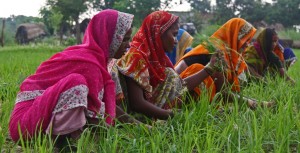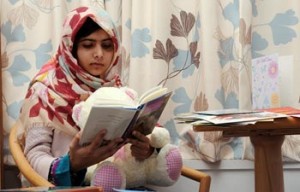Taking Hope and Inspiration from Amazing Women
Mar 7th, 2013 | By admin | Category: Social JusticeBy Suzanne York, www.howmany.org
This International Women’s Day (March 8th) is a great time to consider the links between women’s rights and empowerment, reproductive health, global biodiversity, and stable population growth, and how tackling these issues can result in a more sustainable world.
Investing in women – namely providing education, healthcare, economic opportunities, sustainable livelihoods, and empowerment – is something the global community should be supporting anyway for the good of society.
In a world of over 7 billion people, projected to be somewhere between 8 and 10 billion by 2050, it is easy to get lost in the numbers. Numbers are important, such as the 222 million women around the world that want access to voluntary family planning services but do not have it. Numbers should not be ignored, but neither should it be the main topic of discussion, especially when talking about women’s rights and reproductive rights.
In the U.S. and other countries, certain groups aren’t worried about numbers but rather more secondary issues related to family planning. For example, whether employers, under the federal Health Care Act, should have to cover insurance for employees that allows for contraceptives. Ultimately, these discussions distract from the most important issues of addressing health care needs and empowering women and their families.
It may not be on the evening news, but there are many on-the-ground success stories around the world of women taking charge and improving their lives and their communities. Here are just two examples that can give us hope: girls education and women farmers.
Girls Education
Last year, the tragic shooting of Malala Yousufzai, a Pakistani teenage advocate for girls education, brought attention to the challenges of supporting education for girls. She was shot in the head when Taliban fighters boarded her school bus, severely injuring her and two other students.
Fortunately, this young woman has made a spectacular recovery. Last month, in her first public statement since the incident, Malala was undeterred by the shooting, saying “I want every girl, every child, to be educated.”
If she decides to continue to work on educating girls in Pakistan, she will have an uphill battle, Taliban assassins notwithstanding. According to the Central Asia Institute, which builds schools in the region, Pakistan has the second-highest number of girls who are not enrolled in school. Its education budget is less than 2.3 percent of GDP.
The shooting has resulted in more action on the issue of girls education. The UN Special Envoy for Global Education (Former UK Prime Minister Gordon Brown) has been working hard to raise awareness and global aid money for universal education. Brown recently wrote that “Indeed, the new superpower that cannot be ignored is the power that girls are rightly seizing for themselves.”
Pakistan is coping with a myriad of serious problems, such as rapid population growth, widespread poverty, high rates of gender inequality, militants, and government corruption. The U.S., which gave Pakistan over $2 billion in foreign aid in 2012, should direct more of that to empowering girls was one way to alleviate some of these problems.
Malala has just been nominated for the Nobel Peace Prize. Should she receive it, it would help her cause immensely, and improve the plight of girls around the world.
Women and Agriculture
In India, despite its growing economy, many people still rely on agriculture. And women do much of the work. Nearly eighty percent of Indian women work in agriculture, yet less than seven percent of women have land tenure.
The impacts of climate change, and industrial agriculture, are causing enormous damage to the environment, making life that much more difficult for women farmers.
One Indian organization that is trying to protect agricultural livelihoods, promote women’s empowerment, and share best practices based on local and traditional knowledge is the GREEN Foundation. Its mission is to “work toward a well-preserved, diverse ecosystem that will sustain the rural livelihoods of the present generation without eroding the resource base of the future.” The foundation was founded and is led by an amazing woman, Dr. Vanaja Ramprasad. Years ago she recognized that women farmers are the primary seed-keepers in India but lacked land rights and access to credit and other forms of discrimination. She has worked tirelessly in the face of the green revolution and the industrial agriculture system to protect biodiversity and empower small-scale farmers.
Today, Dr. Ramprasad and her foundation are promoting women’s innovations, much of it based on ancestral knowledge and farmer-to-farmer exchanges, including seed banks, multi-cropping, the use of natural pesticides, water harvesting, and other natural farming practices. All this has resulted in a positive and lasting effect on women’s food and economic security, and has empowered women farmers across India.
International Womens Day and Beyond
As we celebrate International Women’s Day, let’s keep the Dr. Ramprasads and Malala’s of the world in our hearts and minds. When society empowers and values women and girls, it gives them the freedom to make positive choices for themselves and their families, which is good for the entire world.
Suzanne York is a senior writer with the Institute for Population Studies
[women farmers photo credit: Rucha Chitnis, http://www.womensearthalliance.org/section.php?id=155]
[Malala Yousufzai photo credit: http://indiatoday.intoday.in/story/november-10-as-malala-day/1/228552.html]


